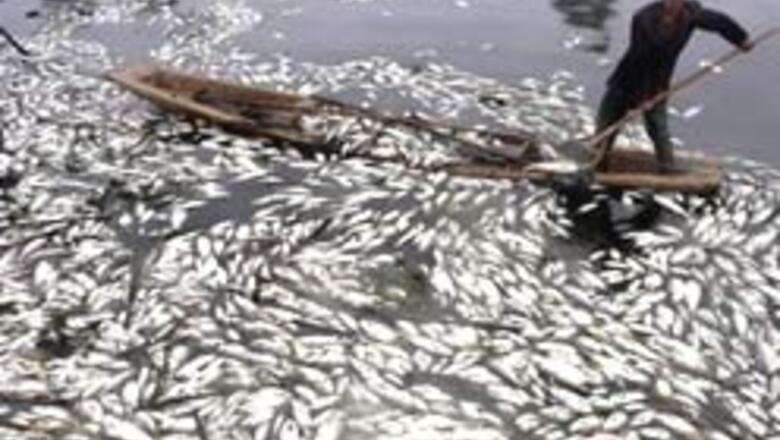
views
Washington: The world's fish and seafood population will collapse by 2048 if current trends in habitat destruction and overfishing continue, resulting in less food for humans, researchers said on Thursday.
In an analysis of scientific data going back to the 1960s and historical records over a thousand years, the researchers found that marine biodiversity - the variety of ocean fish, shellfish, birds, plants and microorganisms - has declined dramatically, with 29 per cent of species already in collapse.
Extending this pattern into the future, the scientists calculated that by 2048 all species would be in for collapse, which the researchers defined as having catches decline 90 per cent from the maximum catch.
This applies to all species, from mussels and clams to tuna and swordfish, said the lead author of the study, Boris Worm. The study was published in the current edition of the journal Science.
Ocean mammals, including seals, killer whales and dolphins, are also affected.
"Whether we looked at tide pools or studies over the entire world's ocean, we saw the same picture emerging," Worm said in a statement.
"In losing species we lose the productivity and stability of entire ecosystems. I was shocked and disturbed by how consistent these trends are - beyond anything we suspected."
When ocean species collapse, it makes the ocean itself weaker and less able to recover from shocks like global climate change, Worm said.
The decline in marine biodiversity is largely due to over-fishing and destruction of habitat, Worm added.
Over-exploitation
The loss of biodiversity makes ocean ecosystems less able to recover from the effects of global climate change, pollution and over-exploitation, Worm exlained.
He likened a diverse ocean environment to a diversified investment portfolio.
"This research shows we'll have few viable fisheries by 2050," International managing editor of Science, Andrew Sugden, told reporters at a telephone news briefing. "This work also shows that it's not too late to act," he added.
To help depleted areas rebuild, marine-life reserves and no-fishing zones need to be set up, Worm and other authors of the study said. This has proven effective in places including the Georges Bank off the US Atlantic coast, he said.
With marine reserves in place, fishing near the reserves can improve as much as four-fold, Worm said.
Beyond the economic benefits to coastal communities where fishing is a critical industry, there are environmental benefits to rebuilding marine biodiversity, the scientists said.
Depleted coastal ecosystems are vulnerable to invasive species, disease outbreaks, coastal flooding and noxious algae blooms, they reported.
Certain kinds of aquaculture - like the traditional Chinese cultivation of carp using vegetable waste - can also be beneficial, according to the scientists. However, farms that aim to raise carnivorous fish are less effective.




















Comments
0 comment